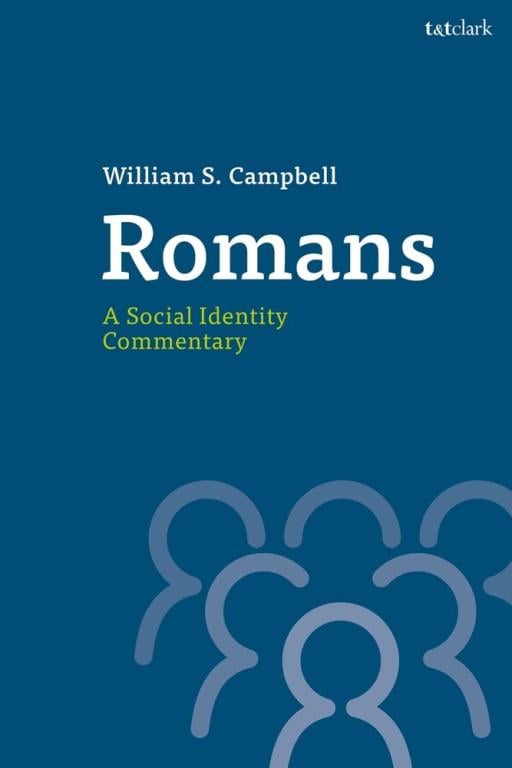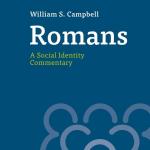Moving on to Rom. 12-15, Campbell rightly notes that Rom. 12-15 rather than being a grab bag of instructions that are unrelated to what goes before says rather they are the implications of Rom. 1-11 and the culmination of his arguments. I agree.
Campbell suggests that 12.1-2 is the reversal of the note about false worship in 1.16-17 i.e. idolatry. He adds that Paul sees these Gentile Christians as the body of Christ, a corporate entity paralleling Israel. The problem is Paul sees himself as well as part of the body of Christ and other Jewish followers of Christ like Apollos or Peter or Silas…. He sees this worship as for Gentiles paralleling Israel’s worship mentioned in 9.4. He’s right the mention of compassion or mercy in 12.1 links this to the immediately preceding argument in Rom.11. He is also right that recognizing Gentiles as Christ followers does not mean God rejected Israel. The latter however is not about God’s faithfulness to a covenant, it is about God’s faithfulness to his character and his promises. Romans 12 is not general parenesis, but a word on target, providing the moral implications of what he has said before. But as the way Paul appeals makes clear, the response must be voluntary, perhaps especially Paul is not the person who converted this audience. So he urges them to embrace what follows in Rom. 12.1-5 by an ‘appeal’.
The word anakainosis occurs for the first time in all Greek lit. here in Rom. 12.2— renewal of the mind. Campbell makes the good point that since as Rom. 6 has said, the audience has already died to their old self and it was buried with Christ, here they are to present themselves as living sacrifices. They are not to be conformed to the world’s views of thing, but rather be transformed by the renewal of the mind— so they can discern what is holy, good, acceptable, perfect behavior. Campbell stresses that Paul is not counter-cultural, rather he works to transform culture. Not a total denial of the world but a transformation of its values and worldview. Its an alternative culture, not a counter culture. I entirely agree. I also like Peterson’s rendering— ‘don’t let the world squeeze you into its mold’.
Paul’s use of ekklesia follows the LXX use of the term, and see also Philo Leg. 3.81; Her.251 to refer to Jewish group meetings. Nowhere are trade guilds or associations calling themselves ‘ekklesia’. So Campbell concludes that while outsiders might have seen ekklesiae as like associations, the insiders involved did not. Campbell is also right that this is after the conversion ethics, not moral requirements for entrance to the community. He offers the interesting translation ‘don’t be super-minded or uppity minded, rather be sober-minded’. The point is to avoid arrogance, and to remember that these gifts one has are gifts of God’s grace, not human accomplishments. Furthermore they are gifts to be exercised according to the measuring rod of faith, better said in proportion to one’s faith or trust in God. And all these gifts are for the common good. Campbell is likely right that the listing of these diverse gifts suggests the Roman Christians are considerable in number, and he is working towards their unity, but it is a diversity in unity. T he emphasis is on the corporate identity and good. But ‘each one’ (vs 3) has a gift to be exercised and contribute to that good.
Beginning in 12.4 we have identity descriptors emphasizing love, humility, service of one another, and the function of all this is to bring together and unify the body of Christ. The love Paul is talking about is not part of the reciprocity spin cycle. It can involve giving with no thought or expectation of return, because loving is the right thing to do. They are to live in harmony with one another, bless and do not persecute others, and there is the call to no retaliation. Leave room from wrath. This whole section has a particularly oral character with assonance, alliteration even rhyme and likely comes close to Paul’s oral preaching. (p. 338).
Because he thinks this addresses only Gentiles, Campbell thinks is more about the arrogance of Gentiles towards Jews as already expressed in Rom. 9-11. The Gentiles think God has cast off Jews and replaced them with Gentiles as his people, and Campbell thinks this is what this is about. Vengeance is God’s prerogative, not ours. We are to overcome evil with good. Campbell barely mentions the allusions to the Sermon on the Mount here. He thinks Paul is reflecting again on the end Deuteronomy, and maybe Prov. 25. While I don’t think the latter is wrong, the major influence in the second half of Romans 12 is the teaching of Jesus, also in the second half of Rom. 13 (see my Romans commentary).













